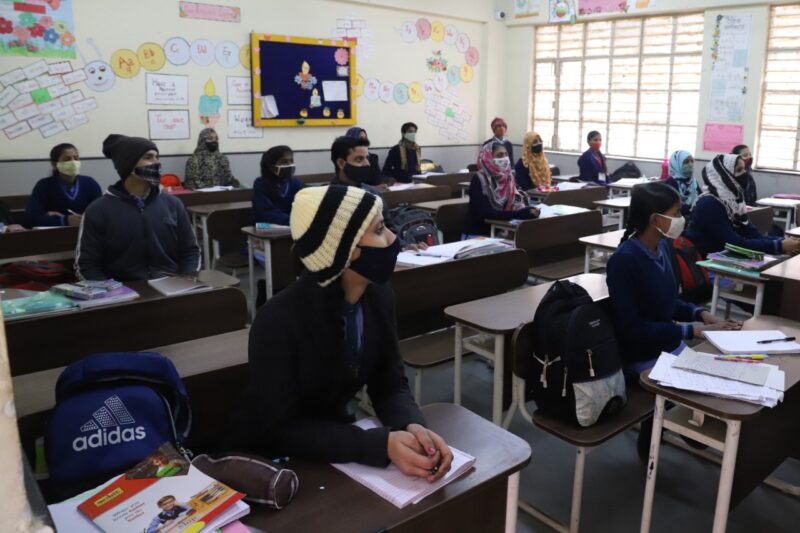Healthcare, education again ignored in Union Budget

Indian government continues to sideline key social sectors like healthcare and education (Photo: Aman Kanojiya)
The Union Budget for 2023-24, announced by Union Finance Minister Nirmala Sitharaman in the Lok Sabha earlier this week continued to focus government spending on large, infrastructure development projects, meant mainly for medium and large businesses, while cutting into the already poor allocations for most of the social sectors that are the sole safety net for a vast majority of the people in the country.
Overall, for many years, India has been one of the lowest spenders in the world on health and education. Over the past nine years of the current government, this spending has only fallen further.
The budget allocations towards health and education have increased as compared to last year but it has reduced marginally in terms of the overall budgetary allocations this year.
The budget estimates for health care for 2022-23 stood at INR 86,200 billion that were revised to INR 79,456 billion for the same period. The estimated budget this year stands at INR 89,155 billion while the healthcare spending was only about 2.2 pc of the budget last year, already one of the lowest in the world, the latest budget has seen its share go down even further to 1.97 pc.
In the Union Budget 2023–24, the healthcare sector has been allocated INR 891.55 billion, which is 13 pc higher than the last allocation for 2022–23, INR 791.45 billion. However, this is merely 2.1 pc of GDP, almost a third of the average health spending in Lower and Middle Income Countries (LMIC), which stood at 5.32 pc in 2019, according to the World Bank.
It pales to insignificance when compared to the spending by rich nations such as the USA which spent 18.7 pc of GDP and even China which spent 6.7 pc of its GDP on healthcare in 2021.
The budget allocation for education in Union Budget 2023-24 has increased from INR 998.81 billion in the last budget to INR 1128.90 billion. While it stands as the highest ever allocation, the expenditure on education as a percentage of overall budgetary allocation has fallen to 2.5 pc this year, compared to 2.64 pc last year. This is again much lesser than the spending of other leading economies as USA and China respectively sent 6.8 pc and 3.6 pc of their GDP in 2020 as per data released by World Bank.
The cut in allocations for health and education has left some disappointed. “There should be many more initiatives and funding for both the healthcare and education sector. There should be equal emphasis and it is a disappointment that the budget has not provided for large-scale development of faculty and infrastructure which is very important for the improvement of both sectors,” says Azhar Hussain, a 27-year-old economic student, from Delhi.
“All these years whenever the budget has come it has neglected both sectors and nothing has been done to develop these sectors. What will this much funds do, when most will go into the pockets of these politicians and leaders? During the budget announcement, it was mentioned that digital libraries would be provided at the panchayat level. How it will help the students from rural areas who do not have access to electronic gadgets,” Hussain adds.
“Those who frame the budget, they must be careful to ensure that benefits don’t just consider those who have access to internet and digitalisation, but also they should measure the impact on the underprivileged and marginalised children who continue to learn without internet access and digital devices,” he adds.
According to the data from the Ministry of Health and Family Welfare in 2019, India had only 1.7 nurses for every thousand people compared to the ideal ratio of three nurses per thousand people. The Covid-19 years have increased this gap even more and it is the same for doctors and other paramedic staff. The poor allocation made for healthcare has upset students and professionals of the sector.
“We lack adequate number of doctors and nurses and we don’t have proper public healthcare infrastructure. The country needs significant transformations in improving the accessibility and availability of medical facilities and for this the budgetary allocation should have been enhanced significantly,” Ramesh Sindhu, a 25-year-old student of medicine tells Media India Group.
“We need basic facilities and just announcing new nursing college will not help anything, when there are more loopholes in this sector that need immediate attention. During the pandemic, we saw clearly that the healthcare sector had totally collapsed, while it should have been the backbone,’’ he adds.
But not everyone was disappointed by the budget. Some of the stakeholders are in favour of the budget allocations given to various sectors for the purpose of development and boosting the economy of the country. “The budget allocations for this year are far better than the previous year and will help the country in boosting the economy, generating jobs and developing different sectors and enhance the infrastructure and provide better opportunities under the budget of this year,” Suvro Kamal Dutta, an economist tells Media India Group.
“The budget is also going to uplift marginalised sectors of the society by providing them with better schemes and fixing rates of the commodities. The income tax rebate will also reduce the burden from the shoulders of poor and middle-class people and there will be less inflation in the upcoming year with the hope that the country will develop in a better way,” Dutta adds.









